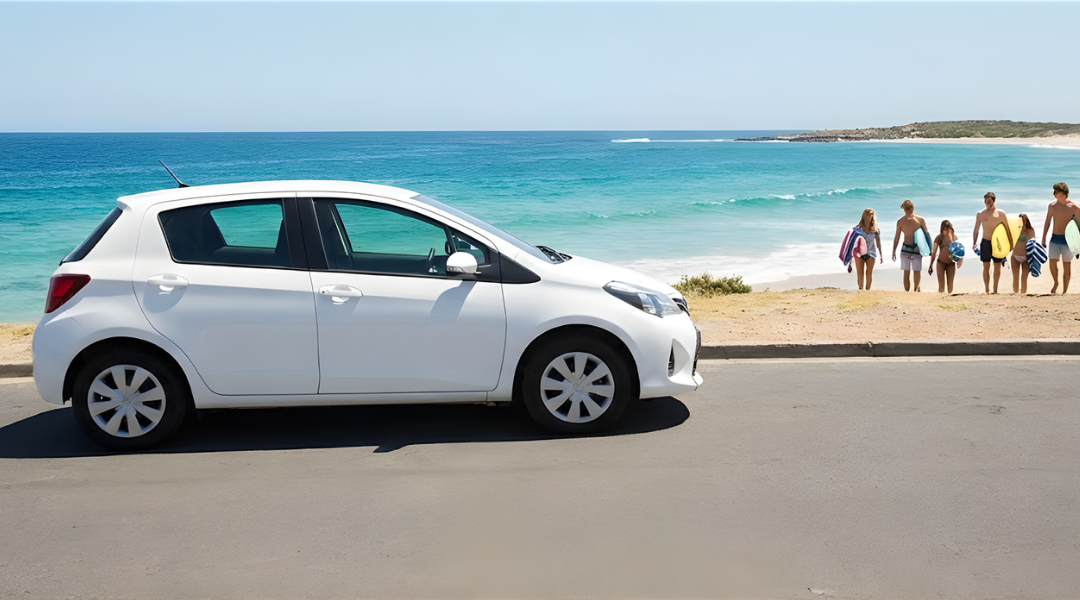Effective waste management is crucial for businesses of all sizes. It’s not just about keeping your premises clean; it’s a vital aspect of environmental responsibility and legal compliance. Improper waste disposal can lead to hefty fines, damage your brand reputation, and negatively impact the environment. A well-structured waste management plan, often involving specialised equipment, is essential for responsible operations. For many businesses, especially those with fluctuating waste volumes or project-based needs, waste management truck rentals offer a practical and cost-effective solution.
The Importance of Waste Management
Businesses generate various types of waste, from everyday office trash to specialised industrial byproducts. Proper waste management addresses the entire lifecycle of waste, from generation and collection to transportation, processing, and disposal. This involves:
- Environmental Responsibility: Responsible waste management minimises pollution, conserves resources, and reduces the strain on landfills. It contributes to a healthier environment and a more sustainable future. This includes proper handling of hazardous waste to prevent contamination and ecological damage.
- Legal Compliance: Numerous local, regional, and national regulations govern waste disposal. Businesses must adhere to these laws to avoid penalties and legal repercussions. These regulations often dictate specific waste handling procedures, documentation requirements, and disposal methods.
- Reputation Management: Consumers are increasingly conscious of environmental issues. Businesses that demonstrate a commitment to responsible waste management enhance their brand image and build trust with customers. Conversely, neglecting waste management can lead to negative publicity and damage a company’s reputation.
- Cost Control: Efficient waste management can actually save businesses money. By optimising waste collection routes, reducing waste volume through recycling and reuse programs, and negotiating favorable disposal contracts, companies can significantly lower their waste management expenses.
Benefits of Waste Management Truck Rentals
Renting waste management trucks offers a range of advantages for businesses:
- Cost-Effectiveness: Purchasing specialised waste management vehicles can be a significant capital investment. Renting eliminates the upfront costs of purchasing, maintenance, and depreciation. You only pay for the truck when you need it, making it a budget-friendly option, especially for short-term projects or seasonal fluctuations in waste volume.
- Flexibility: Rental agreements can be tailored to specific needs and durations. Whether you need a truck for a day, a week, or several months, you can find a rental plan that suits your requirements. This flexibility allows businesses to scale their waste management capacity up or down as needed.
- Access to Specialised Equipment: Different types of waste require different types of trucks. Rental companies offer a variety of vehicles, including roll-off trucks, garbage trucks, recycling trucks, and hazardous waste transport vehicles. Renting provides access to specialised equipment without the need for a large capital outlay. This ensures you have the right truck for the job, improving efficiency and safety.
- Maintenance and Repairs: When you rent a truck, the rental company is typically responsible for maintenance and repairs. This saves you time and money on vehicle upkeep, ensuring that the equipment is always in good working condition. You avoid the hassle of scheduling maintenance, dealing with breakdowns, and managing a fleet of vehicles.
- No Storage Concerns: Owning a fleet of waste management trucks requires dedicated storage space. Renting eliminates this need, freeing up valuable space at your business premises. You don’t have to worry about parking, storage, or security for vehicles you only use occasionally.
- Trial Before Purchase: Renting allows you to test different types of trucks and assess their suitability for your specific needs before making a purchase decision. This “try before you buy” approach can help you avoid costly mistakes and ensure you invest in the right equipment for your business.
- Compliance with Regulations: Reputable rental companies ensure their trucks meet all relevant safety and environmental regulations. This helps businesses stay compliant with waste disposal laws and reduces the risk of penalties.
Types of Waste Management Trucks
Waste management relies on a variety of specialised trucks to handle different types and volumes of materials. Choosing the right truck is crucial for efficient and cost-effective waste disposal. Here’s an overview of common types:
Roll-off Trucks:
Roll-off trucks are heavy-duty vehicles designed to transport large containers or “roll-off” boxes. These trucks are characterized by a hydraulic arm that lifts and positions the container onto the truck bed. Roll-off containers come in various sizes, making them suitable for a wide range of applications.
- Suitability: Roll-off trucks are ideal for:
- Construction sites: Handling debris, construction materials, and other waste generated during building projects.
- Demolition projects: Removing large volumes of demolition debris, including concrete, wood, and metal.
- Large-scale waste disposal: Managing waste from industrial facilities, manufacturing plants, and large events.
- Recycling: Collecting recyclable materials in bulk.
Front Load Trucks:
Front load trucks are easily recognisable by their large forks at the front, used to lift and empty specialised waste containers. These containers are typically found in commercial settings, such as restaurants, apartment complexes, and retail stores. Front load trucks compact the waste within the truck body, maximising capacity.
- Suitability: Front load trucks are commonly used for:
- Commercial waste collection: Collecting waste from businesses and multi-tenant residential buildings.
- Industrial waste collection: Managing waste from factories and warehouses.
- Recycling collection: Collecting recyclables from businesses and commercial properties.
Rear Load Trucks:
Rear load trucks are designed to collect waste from smaller containers, typically residential garbage cans or small commercial bins. These trucks have an open top at the rear where waste is loaded, often manually. They are commonly used in residential areas and for smaller businesses.
- Suitability: Rear load trucks are suitable for:
- Residential waste collection: Collecting household garbage and recyclables.
- Small commercial waste collection: Servicing small businesses and offices.
- Rural waste collection: Accessing areas with narrow roads or limited access.
Specialised Trucks:
In addition to the commonly used types above, several specialised trucks cater to specific waste streams:
- Recycling Trucks: These trucks are often equipped with compartments or separate bins to collect different types of recyclable materials (e.g., paper, plastic, glass). They may also have compacting mechanisms to maximise capacity.
- Hazardous Waste Trucks: These trucks are designed and equipped to safely transport hazardous materials, such as chemicals, medical waste, and asbestos. They must comply with strict regulations and often feature specialised containment systems.
- Vacuum Trucks: These trucks are used to collect and transport liquid waste, such as sewage, sludge, and industrial wastewater. They use a powerful vacuum system to suck up the waste and store it in a tank.
- Dump Trucks: While not strictly waste management trucks, dump trucks are often used to transport construction debris, soil, and other materials to landfills or disposal sites.
Factors to Consider When Renting
Renting waste management trucks requires careful consideration of several factors to ensure you get the right equipment and service for your needs.
1. Waste Volume and Type:
Accurately assessing the volume and type of waste your business generates is the first step. Different waste streams require different handling and disposal methods, which in turn dictate the type of truck you’ll need. Consider whether you’re dealing with general waste, recyclables, construction debris, hazardous materials, or a combination. Estimating the volume of waste will help you choose the appropriate truck size and container capacity.
2. Frequency of Collection:
How often you need waste collection will influence your rental duration and potentially the type of truck. Businesses with high waste volumes might require daily or multiple daily collections, while others might only need weekly or monthly service. Understanding your collection frequency helps you plan your rental schedule and optimise your waste management process.
3. Budget Constraints:
Waste management is a business expense, so setting a budget is essential. Rental costs vary depending on the type of truck, rental duration, and the provider. Consider not just the rental fee but also any additional costs, such as fuel, insurance, and potential disposal fees. Comparing quotes from multiple providers will help you find the most cost-effective option.
4. Rental Duration:
The length of time you need the truck will impact the overall cost. Short-term rentals (e.g., for a one-time project) are often priced differently than long-term leases. Consider whether your needs are short-term, project-based, or ongoing. Long-term rentals might offer better rates but also require a longer commitment.
5. Insurance and Liability:
Before renting, clarify insurance coverage for the truck and any liability considerations. Understand what is covered by the rental company’s insurance and what you are responsible for. Make sure you have adequate insurance to protect your business in case of accidents or damage involving the rented equipment.
6. Driver Requirements:
Some waste management trucks, especially those transporting hazardous materials, may require specialised driver qualifications or certifications. Determine if your business has qualified drivers or if you need to factor in the cost of hiring drivers with the necessary credentials. Check with the rental company about their driver requirements and any training they offer.
Finding a Reliable Rental Provider
Choosing the right rental provider is crucial for a smooth and efficient waste management experience.
1. Research and Compare Providers:
Start by researching local waste management companies that offer truck rentals. Compare their services, pricing, available truck types, and customer reviews. Online searches, business directories, and industry contacts can be valuable resources. Don’t hesitate to contact multiple providers to request quotes and ask questions.
2. Check for Experience and Reputation:
Choose a reputable provider with a proven track record and experience in waste management services. A company with a long history in the industry is more likely to have reliable equipment, knowledgeable staff, and established processes. Check online reviews and ask for references to gauge the provider’s reputation.
3. Consider Alpha Car Hire:
Alpha Car Hire is a trusted rental provider offering a wide range of trucks suitable for various waste management needs. They are known for their competitive rates, flexible rental options, and reliable vehicles. You can find more information about their services and truck availability on their website or by contacting them directly.
4. Inquire About Maintenance and Support:
Inquire about the provider’s maintenance and support services. What happens if the truck breaks down? Do they offer emergency repairs or replacement vehicles? Understanding their maintenance procedures and support policies will give you peace of mind and minimise potential disruptions to your waste management operations. A reliable provider should offer prompt and efficient support to address any issues that may arise.
Tips for Efficient Waste Management
Effective waste management goes beyond simply renting a truck. Implementing best practices can significantly improve efficiency and reduce costs.
Waste Reduction Strategies:
Minimizing the amount of waste your business generates is the most effective way to reduce waste management costs and environmental impact. Consider these strategies:
- Recycling: Implement a comprehensive recycling program for paper, plastic, metal, glass, and other recyclable materials. Provide clearly labeled recycling bins throughout your workplace.
- Composting: If your business generates food waste, explore composting options. Composting can significantly reduce the volume of organic waste sent to landfills.
- Minimising Packaging: Work with suppliers to reduce the amount of packaging used for incoming goods. Choose products with minimal packaging or opt for reusable containers.
- Reuse: Find ways to reuse materials whenever possible. For example, office paper can be reused for internal memos or notepads.
- Waste Audits: Conduct regular waste audits to identify areas where waste generation can be reduced. Analyze your waste stream to understand what materials are being discarded and where reductions can be made.
Proper Waste Segregation:
Proper waste segregation is crucial for efficient collection and recycling. Clearly label bins for different types of waste (e.g., general waste, recyclables, compost). Educate employees on the importance of proper segregation and provide clear guidelines. Effective segregation minimizes contamination of recyclable materials and makes the waste processing easier and more cost-effective.
Driver Training:
Drivers play a critical role in efficient waste management. Ensure that drivers are properly trained in safe driving practices, waste handling procedures, and proper loading and unloading techniques.
Training should also cover the proper use of the truck’s equipment, such as hydraulic lifts and compactors.
Conclusion
Effective waste management is not merely a legal obligation but a strategic imperative for businesses. By understanding the various types of waste management trucks available, considering key rental factors, and implementing efficient waste reduction and segregation strategies, companies can significantly improve their environmental performance, reduce costs, and enhance their brand reputation. Choosing the right rental partner and prioritising driver training further contributes to a seamless and sustainable waste management program, ultimately benefiting both the business and the environment.
Choose Alpha Car Hire for Truck Rental Solutions
For reliable and efficient waste management truck rental solutions in Brisbane, Melbourne, Gold Coast, and Logan, choose Alpha Car Hire. You can rent our diverse fleet of well-maintained trucks in the following locations: Brisbane, Melbourne, Gold Coast, and Logan. We offer a wide range of vehicles to suit all your waste disposal needs, from roll-off trucks for large-scale projects to specialised vehicles for specific waste streams. Our competitive rates, flexible rental terms, and commitment to customer satisfaction make us the ideal partner for your business. Contact Alpha Car Hire today to discuss your requirements and find the perfect truck rental solution for your waste management needs. Here are the




